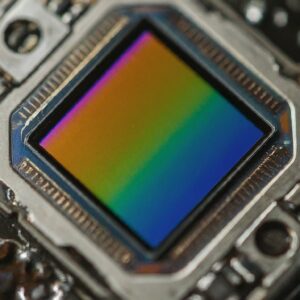The future of computing and its impact on society
As we stand at the cusp of a new era, the future of computing promises a tapestry of innovation and transformation that will reshape the way we live, work, and connect. In this blog, we embark on a journey into the future of computing, exploring emerging technologies and their profound impact on society
1. Quantum Computing: Unleashing Unprecedented Power
At the forefront of technological advancement is quantum computing. Unlike classical computers that use bits to represent either 0 or 1, quantum computers leverage quantum bits or qubits. This enables them to perform complex calculations at speeds unimaginable with traditional computing methods. Quantum computing holds immense potential for solving complex problems in fields like cryptography, optimization, and artificial intelligence.

2. Artificial Intelligence (AI) and Machine Learning (ML): Augmenting Human Capabilities
The future of computing is inseparable from the rise of Artificial Intelligence and Machine Learning. AI and ML algorithms are becoming increasingly sophisticated, allowing machines to learn, adapt, and make decisions. From predictive analytics to autonomous vehicles and personalized healthcare, AI is poised to revolutionize various industries, enhancing efficiency and transforming the way we interact with technology.

3. Edge Computing: Bringing Processing Power Closer to Home
Edge computing is a paradigm shift from the traditional cloud-based model. By processing data closer to the source, edge computing reduces latency and enhances real-time processing capabilities. This is particularly crucial for applications like the Internet of Things (IoT), where devices need quick responses. The proliferation of edge computing will facilitate faster and more responsive digital experiences.

4. 5G Technology: Catalyzing Connectivity
The advent of 5G technology is set to revolutionize communication and connectivity. With significantly faster speeds and reduced latency, 5G will unlock new possibilities for interconnected devices and enable technologies like augmented reality and virtual reality to reach their full potential. The widespread adoption of 5G will foster a more connected and responsive digital ecosystem.

5. Biocomputing: Where Technology Meets Biology
Biocomputing explores the integration of biological systems with computing. This includes using DNA and other biological molecules for information storage and processing. The potential applications are vast, ranging from highly dense data storage to bioinformatics and medical diagnostics. Biocomputing holds promise for creating more sustainable and energy-efficient computing solutions.

6. Ethical Considerations: Navigating the Societal Impact
As computing technologies advance, ethical considerations become paramount. Issues related to privacy, security, and the responsible use of AI demand careful attention. Society must grapple with questions about data ownership, algorithmic bias, and the impact of automation on employment. Striking a balance between innovation and ethical considerations will be crucial for harnessing the full benefits of future computing technologies.

Conclusion:
The future of computing is a thrilling frontier, filled with potential and possibilities. From quantum leaps in processing power to the integration of technology with biology, the trajectory of computing is evolving at an unprecedented pace. As we navigate this transformative journey, it is essential to approach these advancements with a thoughtful and ethical mindset, ensuring that the benefits of technology are harnessed for the greater good of society. Embracing the future of computing means not just adapting to change but actively shaping a future where technology serves humanity in ways we have yet to imagine.



